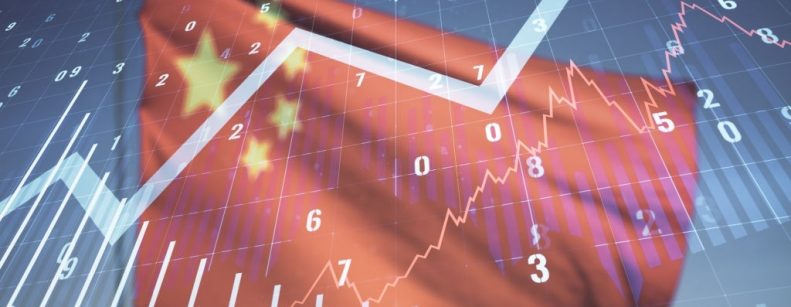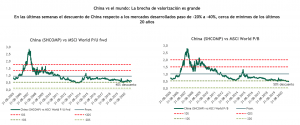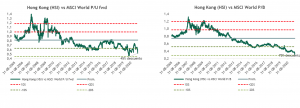
Chinese stocks have been under siege, first by regulatory escalation in the education technology sector, followed by antitrust regulators ordering Tencent to give up its music streaming monopoly and food delivery companies such as Meituan to raise wages and benefits for its drivers. Then, Tencent had to suspend new account registrations for its flagship WeChat app for a security update.
The spate of bad news caused A-shares to fall more than -6% early last week. Domestic investors have gone from thinking that regulators were only after a few big companies to worrying that no sector is safe and that the damage could be long-lasting. Such investors had become complacent in their view of regulatory risk, however, lawmakers hate domestic market volatility and have moved to calm nerves. A commentary in the state-run Shanghai Securities News said that the sharp fall in prices will not continue and that "the downturn brings opportunities." It then amplified the message with an instruction, "Don't panic!", Noting that domestic mutual funds had more than RMB850bn available to buy A-shares.
Behind the scenes, regulators reached out to financial institutions to offer assurances on policy. These moves have stabilized the markets over the days, with Internet stocks and capital inflows recovering, but for the tranquility to last, the pace of destabilizing regulatory actions must slow.
There is good reason for policymakers to calm down. China's securities regulators have two main functions: (i) to nurture capital markets, so that companies in favored sectors can raise funds, and (ii) to prevent destabilizing volatility, especially downside. The crackdown on Internet companies works in accordance with the first objective. Rather than seeing the Internet sector as a national vanguard of innovation, policymakers increasingly view it as a source of social problems and security risks. Encouraging capital markets to invest less money in consumer Internet services and more in high-tech manufacturing reflects the government's long-term goals. But if the domestic stock market crashes as investors fear the government is punishing companies indiscriminately, fundraising for all sectors is threatened.
China's policymakers know that domestic capital markets must develop if their long-term policy goals are to be met. After all, achieving global technological leadership and managing competition with the US will be a costly task. They may be willing to restrict companies' access to global capital (stricter rules have halted Chinese stock offerings in New York), but this makes domestic and Hong Kong markets all the more important.
For all these reasons, both the intensity and tone of the recent regulatory crackdown are likely to diminish. That does not mean that the campaign to comprehensively regulate Internet platforms will be abandoned, as it remains a high-level policy priority. There is no going back to the unbridled expansion of years past. But the regulatory storm may be reduced to a more manageable size that, given the attractive valuations of Chinese technology companies, could well be buying opportunities for investors with a higher tolerance for risk and volatility.

